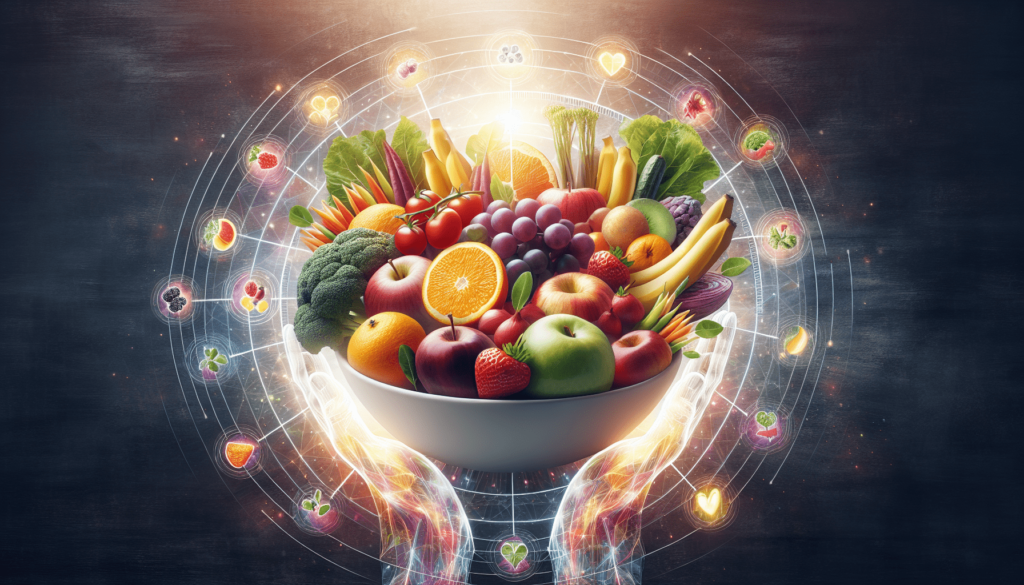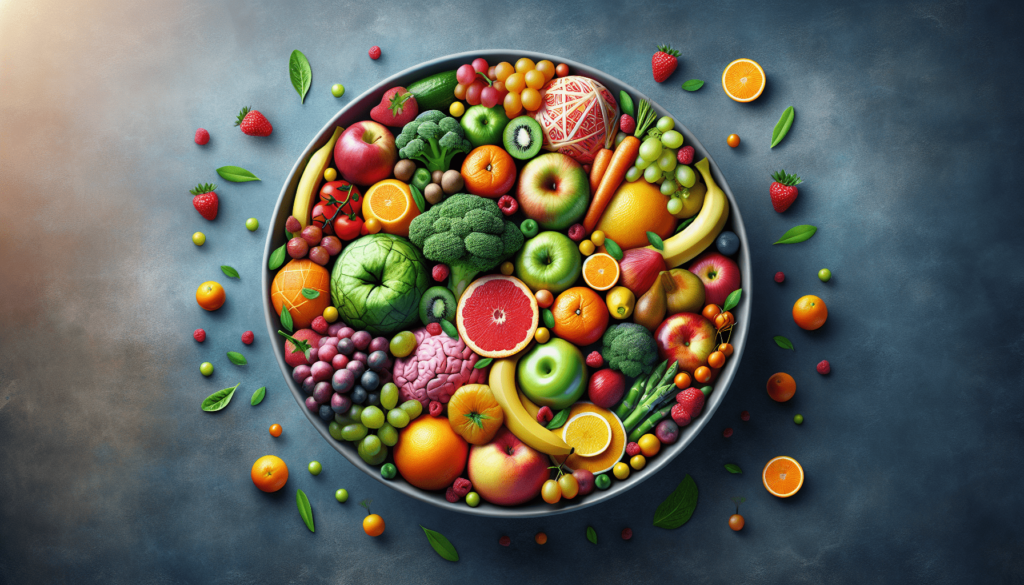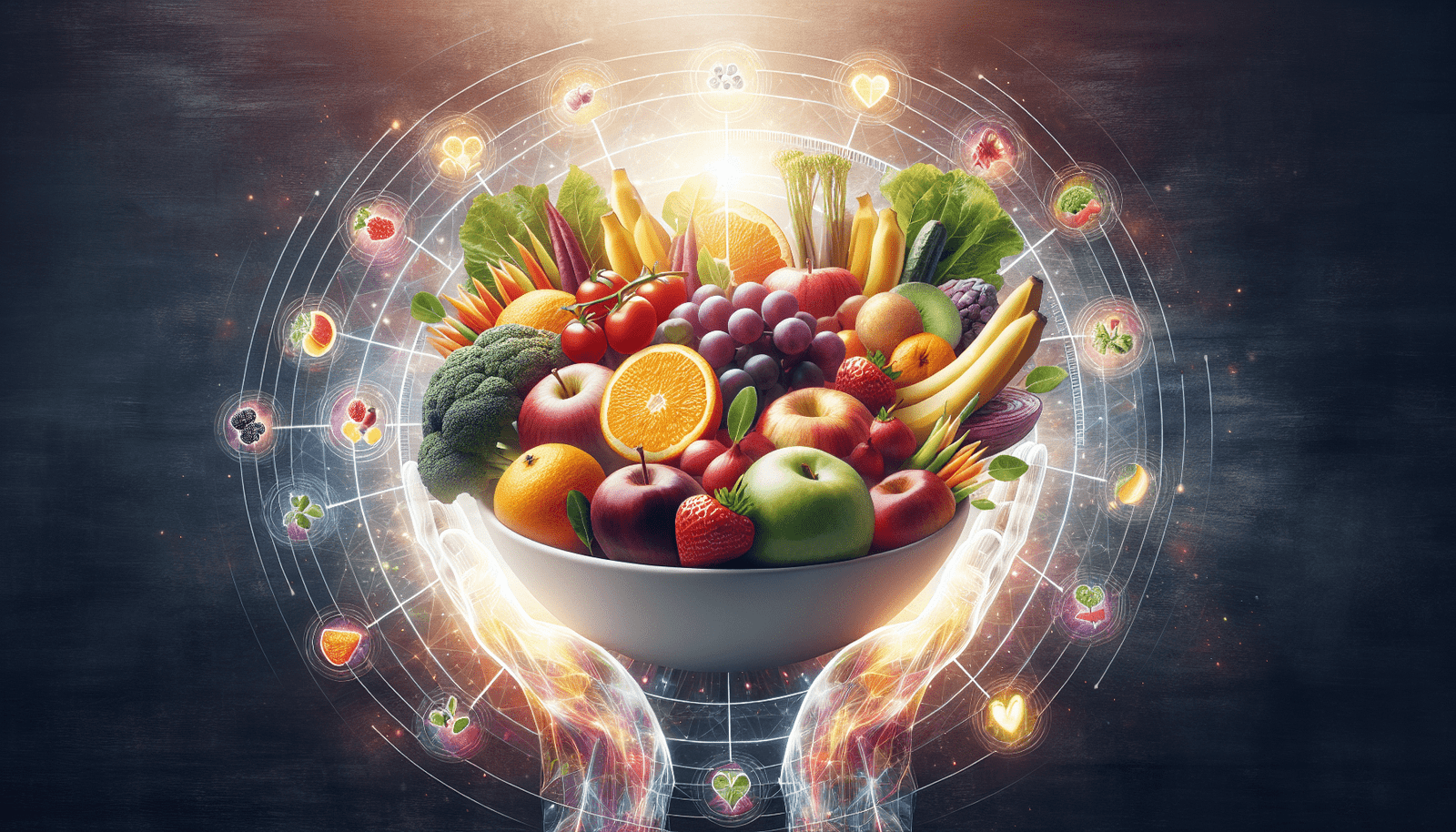Are you interested in finding out the top functional foods that can support the health and well-being of aging populations? In this article, we will explore the most beneficial foods that can help improve cognitive function, boost energy levels, and promote overall vitality in older adults. From antioxidant-rich berries to omega-3 fatty acid-packed fish, we will uncover the nutritional powerhouses that can enhance the quality of life for our aging population. So, if you’re curious to unlock the secrets of aging gracefully through diet, read on to discover the best functional foods for older adults. As you age, it becomes even more important to prioritize your health and nourish your body with nutrient-rich foods. Functional foods are those that provide a variety of health benefits beyond basic nutrition. They can help support your overall well-being and contribute to healthy aging. In this article, we will explore the best functional foods for aging populations, focusing on a range of fruits and vegetables, whole grains, healthy fats, lean protein sources, probiotic-rich foods, antioxidant-rich foods, calcium-rich foods, vitamin D sources, high-fiber foods, and herbs and spices.

Fruits and Vegetables
Adding a colorful array of fruits and vegetables to your diet is a great way to support your health, and there are a few key options that are particularly beneficial for aging populations. Blueberries, for example, are packed with antioxidants that help protect your cells from damage caused by free radicals. They are also rich in vitamins C and K. Spinach is another fantastic choice, as it is a good source of iron, vitamins A and C, and calcium. Broccoli is a cruciferous vegetable that is high in fiber and contains a compound called sulforaphane, which has been linked to a reduced risk of chronic diseases. Oranges are an excellent source of vitamin C, which supports immune function and collagen production. Finally, carrots are packed with beta-carotene, which is converted into vitamin A in the body and essential for healthy vision.
Whole Grains
When it comes to whole grains, there are several options that are especially beneficial for aging populations. Oats are a great source of dietary fiber, which supports digestion and helps maintain healthy cholesterol levels. They also contain beta-glucan, a type of fiber that has been associated with improved immune function. Quinoa is a complete protein source and contains all nine essential amino acids. It is also rich in fiber, magnesium, and antioxidants. Brown rice is a nutritious alternative to white rice, as it retains the bran and germ layers, which are rich in fiber and nutrients. Barley is another whole grain that is high in fiber and contains unique antioxidants called lignans, which have been linked to a reduced risk of heart disease. Lastly, whole wheat products, such as bread and pasta, are packed with fiber, vitamins, and minerals.
Healthy Fats
Including healthy fats in your diet is crucial for overall health and well-being. Avocados are a great source of monounsaturated fats, which can help improve heart health and reduce inflammation. They are also rich in vitamins C, E, and K, as well as fiber. Olive oil is a staple in the Mediterranean diet and contains heart-healthy monounsaturated fats. It is also a good source of antioxidants and has anti-inflammatory properties. Nuts and seeds, such as almonds, walnuts, chia seeds, and flaxseeds, are high in healthy fats, fiber, and protein. They have been associated with a reduced risk of heart disease and are a great snack option. Lastly, salmon is an excellent source of omega-3 fatty acids, which are crucial for brain health and reduce the risk of chronic diseases.

Lean Protein Sources
Getting enough protein in your diet is essential, especially as you age, to support muscle growth and maintenance. Skinless poultry, such as chicken and turkey, is a lean source of protein that is low in saturated fat. Fish, such as salmon, tuna, and sardines, is not only high in protein but also provides omega-3 fatty acids. Low-fat dairy products, such as milk, yogurt, and cheese, are excellent sources of protein, calcium, and vitamin D. Beans and legumes, such as lentils, chickpeas, and black beans, are plant-based protein sources that are also high in fiber, folate, and antioxidants. Lastly, tofu is a versatile soy-based protein source that is low in fat and cholesterol-free.
Probiotic-Rich Foods
Maintaining a healthy gut is important for overall well-being, and including probiotic-rich foods in your diet can support gut health. Yogurt is a popular probiotic food that contains live bacteria cultures, which promote the growth of beneficial bacteria in the gut. Kefir is a fermented milk drink that is similar to yogurt and also contains probiotics. Sauerkraut is made from fermented cabbage and is rich in probiotics as well as fiber and vitamins C and K. Kimchi is a traditional Korean side dish made from fermented vegetables, such as cabbage and radishes, and is packed with probiotics and immune-boosting compounds. Pickles made through the process of lacto-fermentation also offer probiotic benefits, promoting gut health.
Antioxidant-Rich Foods
Antioxidants are compounds that help protect your cells from damage caused by free radicals, which can contribute to aging and chronic diseases. Tomatoes are rich in the antioxidant lycopene, which is associated with a reduced risk of heart disease and certain cancers. Berries, such as strawberries, blueberries, and raspberries, are packed with antioxidants called anthocyanins, which have been linked to improved brain function and reduced inflammation. Dark chocolate with a high cocoa content contains flavonoids, which have antioxidant properties and may help reduce the risk of heart disease. Green tea is rich in antioxidants called catechins, which have been associated with a lower risk of heart disease and stroke. Pecans are nuts that are particularly high in antioxidants, vitamin E, and healthy fats.
Calcium-Rich Foods
Getting enough calcium is essential for maintaining strong bones and preventing osteoporosis. Milk, cheese, and yogurt are excellent sources of calcium, as well as protein and vitamin D. Sardines are small fatty fish that are also high in calcium, as well as omega-3 fatty acids. Tofu is a plant-based source of calcium that is often used as a substitute for dairy in vegetarian and vegan diets.
Vitamin D Sources
Vitamin D is important for bone health, immune function, and overall well-being. Fatty fish, such as salmon and mackerel, are excellent sources of vitamin D, as well as omega-3 fatty acids. Egg yolks are another source of vitamin D, as well as protein and essential nutrients. Fortified milk is often enriched with vitamin D to ensure an adequate intake. Mushrooms have the unique ability to produce vitamin D when exposed to sunlight, making them a great option for vegans and individuals with limited sun exposure. Cod liver oil is a supplement that is particularly high in vitamin D and also provides omega-3 fatty acids.
High-Fiber Foods
Including high-fiber foods in your diet is important for digestive health and preventing constipation. Beans and legumes, such as lentils, chickpeas, and black beans, are high in fiber, protein, and essential nutrients. Whole grains, such as oats, quinoa, brown rice, and whole wheat products, are also rich in fiber, vitamins, and minerals. Berries, such as raspberries, blackberries, and strawberries, are not only packed with antioxidants but also contain a good amount of fiber. Artichokes are a vegetable that is high in fiber, as well as vitamins C and K. Broccoli is another high-fiber vegetable that is also rich in vitamins A and C.
Herbs and Spices
Incorporating herbs and spices into your meals not only adds flavor but also provides a variety of health benefits. Turmeric is a spice that contains a compound called curcumin, which has powerful anti-inflammatory and antioxidant properties. Rosemary is an herb that has been associated with improved memory and brain function, as well as reduced inflammation. Cinnamon is a spice that may help lower blood sugar levels and improve insulin sensitivity. Ginger is a root spice that has been used for centuries to aid digestion and reduce nausea. Garlic is a popular herb that has been shown to have immune-boosting properties and may help reduce the risk of heart disease.
In conclusion, incorporating a variety of functional foods into your diet is essential for healthy aging. Fruits and vegetables, whole grains, healthy fats, lean protein sources, probiotic-rich foods, antioxidant-rich foods, calcium-rich foods, vitamin D sources, high-fiber foods, and herbs and spices all provide unique health benefits and contribute to overall well-being. By prioritizing these nutrient-rich foods, you can support your health and enjoy the many benefits of healthy aging.
